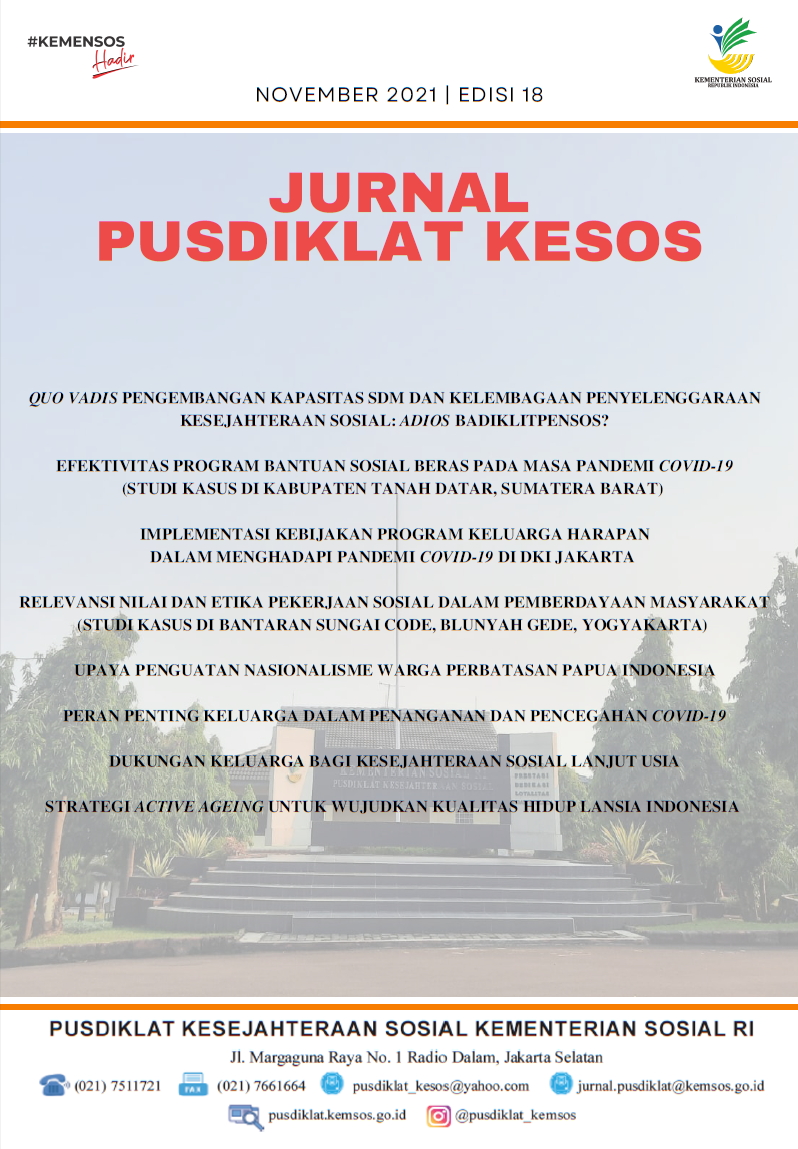Implementasi Kebijakan Program Keluarga Harapan dalam Menghadapi Pandemi Covid-19 di DKI Jakarta
Keywords:
COVID-19, Family Hope Program, policy implementationAbstract
The COVID-19 pandemi in Indonesia that occurred since March 2020 has not only an impact on the health sektor, but also on the socio-economic sektor. Since March 2020 the government has issued various policies to overcome them, Family Hope Program in 2020 has adjusted policy during the pandemi targeting poor families to strengthen purchasing power, improve nutrition, nutrition, and immune system. The most affected by the pandemi are those who work in urban areas and the informal sektor such as DKI Jakarta. This is due to the large-scale sosial restriction policy and more stringent restrictions on the operation of public facilities implemented by the Government. PKH adjusted the PKH sosial assistance policy during the COVID-19 pandemi with 25 percent increasing cash assistance which began in April 2020 with the distribution mechanism from quarter to month. This study analyzes the implementation of policies through PKH in DKI Jakarta as a city that affected due to the COVID19 pandemi with a descriptive qualitative research approach, data were collected through observation, literature study, in-depth interviews and documentation studies. The results show that the implementation of PKH policies that are different from normal situations contributes to KPM in minimizing the impact of the pandemi through cash receipts, reduced expenditures, and provision of family food.






